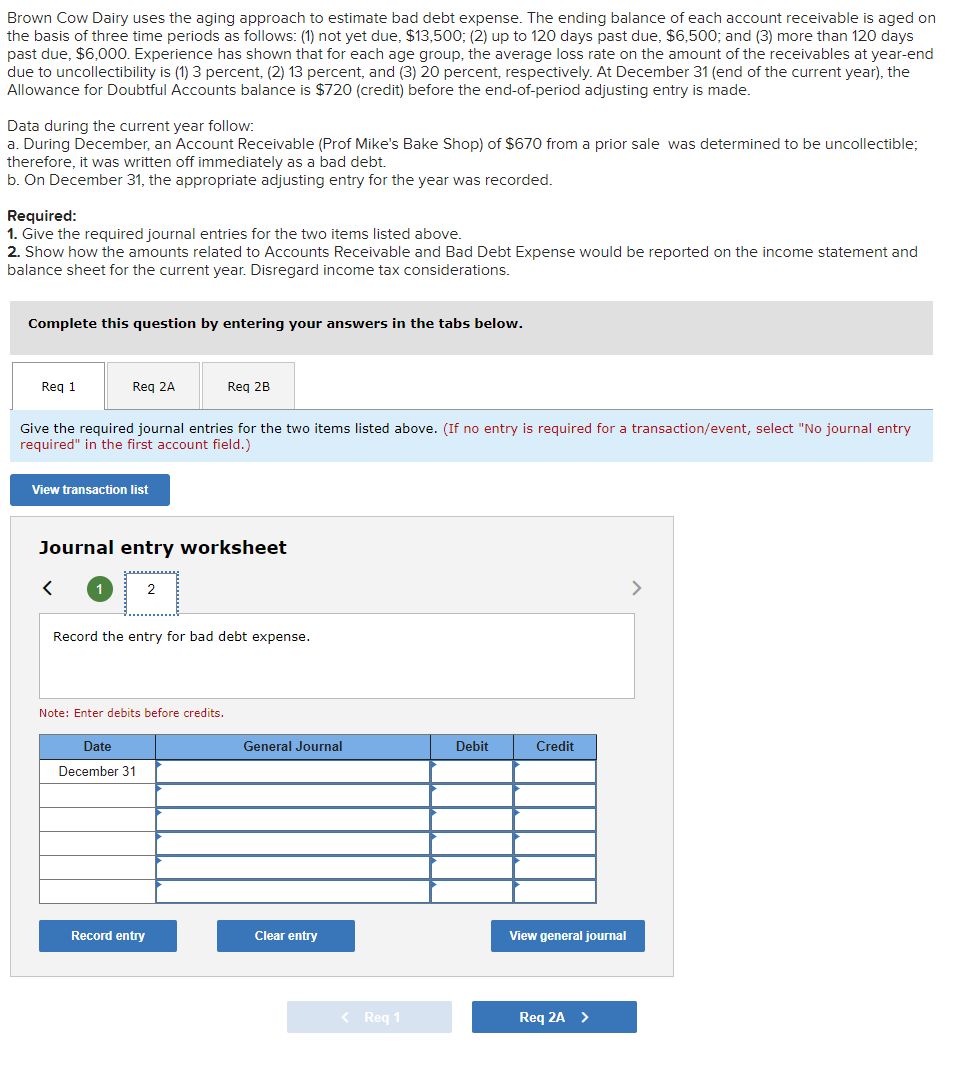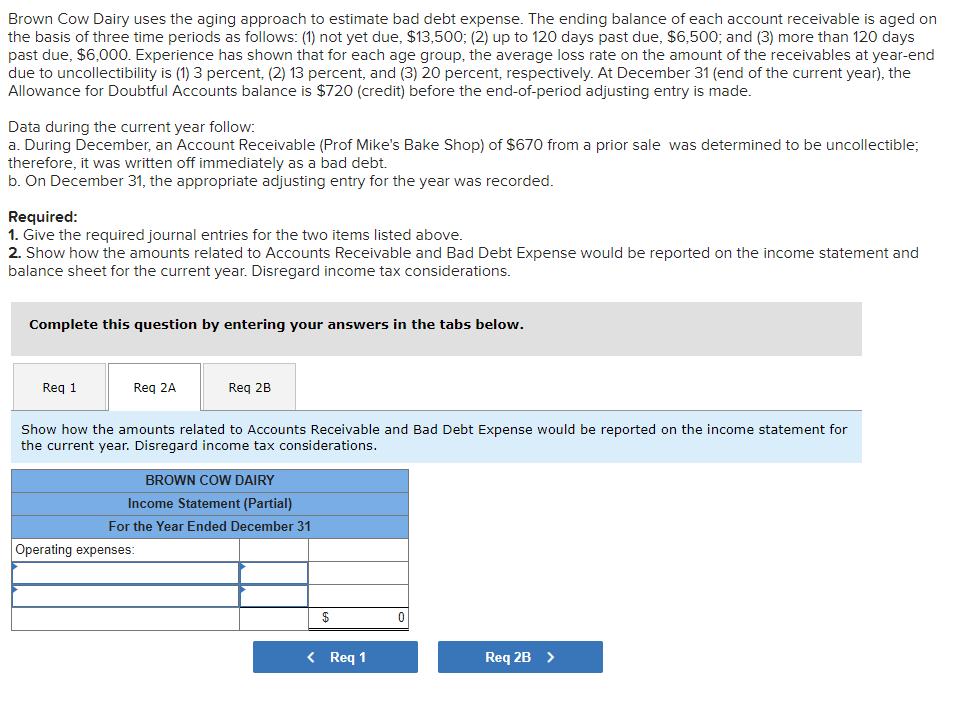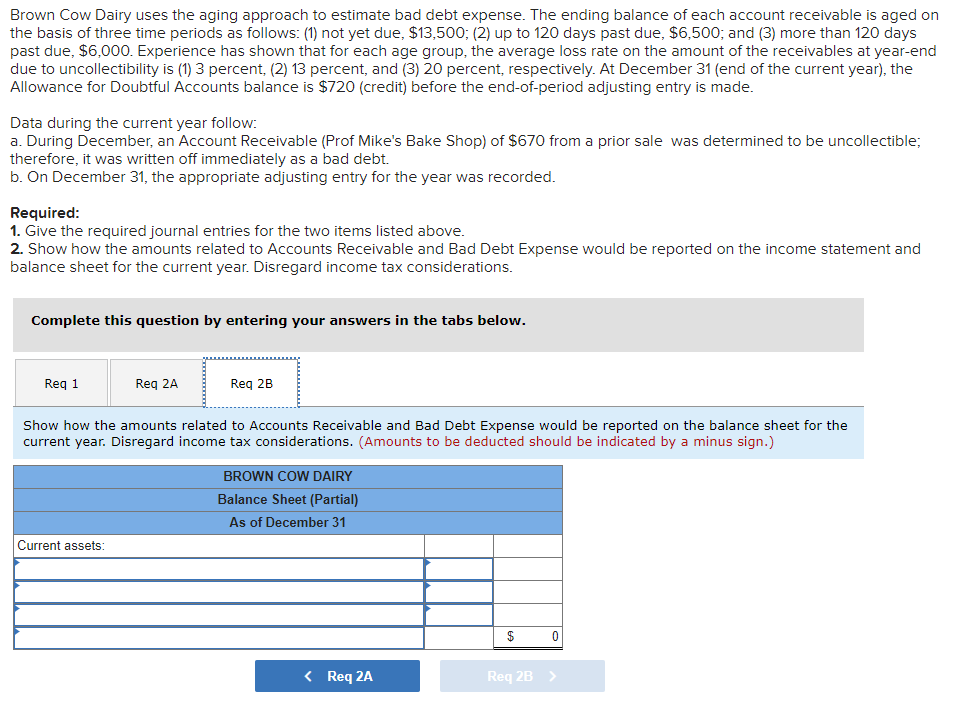


Brown Cow Dairy uses the aging approach to estimate bad debt expense. The ending balance of each account receivable is aged on the basis of three time periods as follows: (1) not yet due, $13,500; (2) up to 120 days past due, $6,500; and (3) more than 120 days past due, $6,000. Experience has shown that for each age group, the average loss rate on the amount of the receivables at year-end due to uncollectibility is (1) 3 percent, (2) 13 percent, and (3) 20 percent, respectively. At December 31 (end of the current year), the Allowance for Doubtful Accounts balance is $720 (credit) before the end-of-period adjusting entry is made. Data during the current year follow: a. During December, an Account Receivable (Prof Mike's Bake Shop) of $670 from a prior sale was determined to be uncollectible; therefore, it was written off immediately as a bad debt. b. On December 31, the appropriate adjusting entry for the year was recorded. Required: 1. Give the required journal entries for the two items listed above. 2. Show how the amounts related to Accounts Receivable and Bad Debt Expense would be reported on the income statement and balance sheet for the current year. Disregard income tax considerations. Complete this question by entering your answers in the tabs below. Req 1 Reg 2A Reg 2B Show how the amounts related to Accounts Receivable and Bad Debt Expense would be reported on the balance sheet for the current year. Disregard income tax considerations. (Amounts to be deducted should be indicated by a minus sign.) BROWN COW DAIRY Balance Sheet (Partial) As of December 31 Current assets: 0 Brown Cow Dairy uses the aging approach to estimate bad debt expense. The ending balance of each account receivable is aged on the basis of three time periods as follows: (1) not yet due, $13,500; (2) up to 120 days past due, $6,500; and (3) more than 120 days past due, $6,000. Experience has shown that for each age group, the average loss rate on the amount of the receivables at year-end due to uncollectibility is (1) 3 percent, (2) 13 percent, and (3) 20 percent, respectively. At December 31 (end of the current year), the Allowance for Doubtful Accounts balance is $720 (credit) before the end-of-period adjusting entry is made. Data during the current year follow: a. During December, an Account Receivable (Prof Mike's Bake Shop) of $670 from a prior sale was determined to be uncollectible; therefore, it was written off immediately as a bad debt. b. On December 31, the appropriate adjusting entry for the year was recorded. Required: 1. Give the required journal entries for the two items listed above. 2. Show how the amounts related to Accounts Receivable and Bad Debt Expense would be reported on the income statement and balance sheet for the current year. Disregard income tax considerations. Complete this question by entering your answers in the tabs below. Req 1 Reg 2A Reg 2B Show how the amounts related to Accounts Receivable and Bad Debt Expense would be reported on the balance sheet for the current year. Disregard income tax considerations. (Amounts to be deducted should be indicated by a minus sign.) BROWN COW DAIRY Balance Sheet (Partial) As of December 31 Current assets: 0









